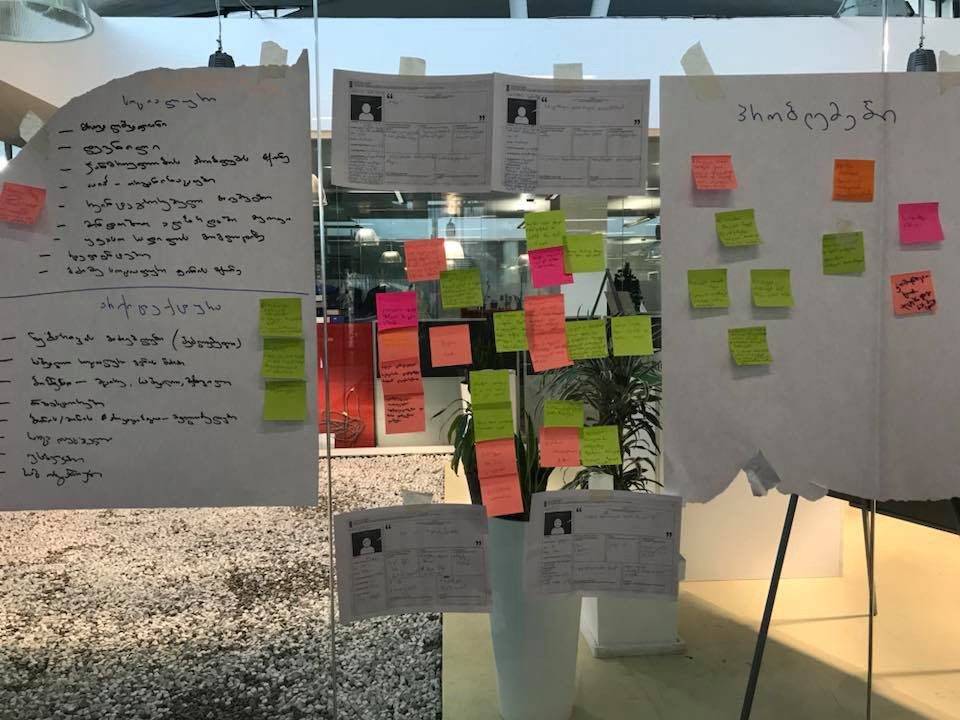You can be of help! Learn How
- Istream
- May 28, 2020
- 3 min read
22 May 2019 by Khatuna Sandroshvili

Violence has more than two sides. It is often witnessed. In most of the cases witnesses remain inert, while their actions could potentially save lives. What can prompt bystanders choose to act? What are the factors stopping them to intervene? What is the necessary information and behavior they need to adopt to help gender-based violence survivors?
These are the questions that a multi-party group of partners of UNDP tried to answer together with the Behavioral Insights Team (BIT), US in 2018 in Georgia and South Africa. Funded by the Government of Denmark through UNDP Innovation Facility this cross-regional initiative tested new ways of addressing the persistent problem against the backdrop of alarming statistics: 35% of women globally are estimated to have experienced physical or sexual violence by intimate partner. In 2016 Georgian emergency management center received 18,163 calls on domestic conflict compared to 5,447 calls in 2013 (population of Georgia is 3.7 million).

Photo: UNDP Georgia
The aim of the initial pilot was two-fold: to identify solutions for preventing intimate-partner violence (IPV), but also develop distributed knowledge among UN and local actors to implement behaviourally-informed interventions. In Georgia, UNDP, UN Women, ServiceLab – the leading government innovation outlet and the emerging leader in data communication - Forset, worked hand in hand with BIT throughout the process involving the service mapping and interviews, intervention design and testing, Randomised Control Trial, identifying behavioural barriers; and developing behaviourally informed messages to address those;
The method the joint UN and BIT team applied was BITs TEST framework. Initial exploratory research and on-site interviews indicated that survivors do not receive sufficient emotional support (e.g feel pressure to protect the family reputation by keeping quiet about abuse); and need more support to access services (thinking that services are only for homeless). Bystanders, on the other hand, hold to negative social norms (consider abuse to be a private matter), do not know how to help; feel helplessness as the cases of abuse are so widespread, and fear retaliation;
Equipped with these findings we went ahead designing a Facebook-based trial focusing on the two barriers to bystander action. Negative social norms we contrasted with the statement that the true social norm was different – Georgians actually do not believe abuse is a private matter (the latest nation-wide research data revealed only 33% of Georgian women and 50% of Georgian men believe that IPV is a private matter). For the perceived helplessness we tried to reframe the concept of support itself highlighting that providing emotional support to survivors could be impactful. These two barriers were combined with the advice on how to offer emotional support and learn how to connect survivors to existing services.
There were several versions of the ads produced reaching over 150,000 viewers, generating twice the rate of average ad views. The most frequently accessed ad was the one combining social support and perception that abuse is not a private matter. Focusing on this aspect could produce positive change in bystander action. There were surprises too. We assumed social media would be most effective to reach younger population, while the trial showed that people over the age of 45 were most motivated to intervene. What comes next is the scaling phase to help service providers shape public communication on social support and expand the trial to wider audience through Public Service Hall serving 10,000 people daily.
Thinking back, it was one of the most challenging and fulfilling initiatives to lead cross-regionally for me as the innovation person at UNDP Georgia. Only a year ago we did not know much about behavioural science, and though we are far from being experts, there is a team of local actors equipped with the new knowledge to tackle other development challenges through behavioural prism. This year we have initiated more behavioural experiments in two areas: public service provision for agriculture and plastic consumption, the latter with UNDP Moldova.
If you have worked in these fields, reach out to us at UNDP Georgia – you can be of help!
Violence has more than two sides. It is often witnessed. In most of the cases, witnesses remain inert, while their actions could potentially save lives. What can trigger bystanders to take action? What are the factors stopping them to intervene? What is the necessary information and behavior they need to adopt to help gender-based violence survivors?

Photo: UNDP Georgia




Comentários